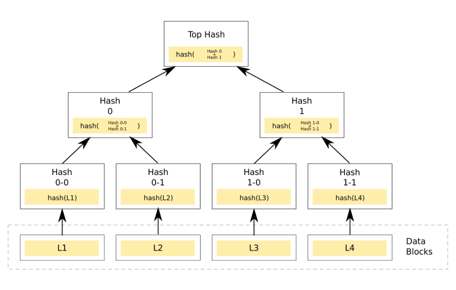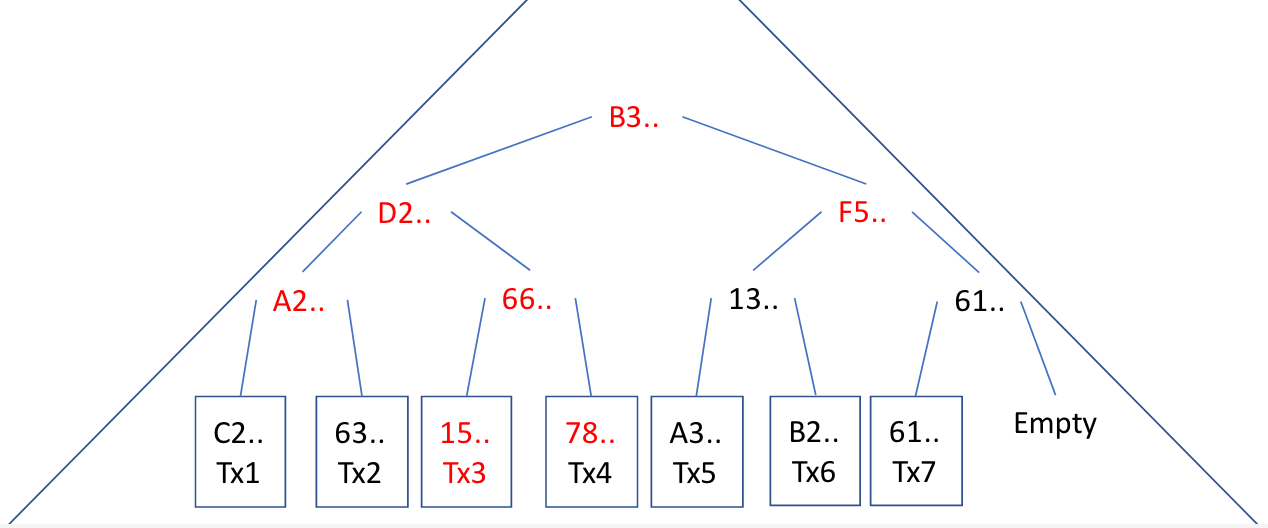Transaction Merkle Tree
Merkle tree
From Wikipedia: “A Merkle tree is a tree in which every leaf node is labeled with the cryptographic hash of a data block, and every non-leaf node is labeled with the cryptographic hash of the labels of its child nodes.”

- In the blockchain world, Merkle trees are usually used to verify the existence and validity of transactions in a block.
- Thanks to the tree properties, to prove a specific transaction existence in a block, there's no need to expose the rest of the block transactions, just the content of the transaction itself and the list of log(N) hashes.
- Usually, only the Merkle tree root hash is exposed to end-user.
Merkle tree proof example
Here is an example of proof generation and verification, based on an example tree
To prove that
Tx3is part of the block Merkle tree with root B3.. , we needTx3, its hash – 15.. and 78.. (hash of sibling transaction), A2.. (sibling in Merkle tree), and F5.. (sibling in Merkle tree).So, the final proof is {15.., 78.., A2.., F5.., B3..}
Proof validation: hash(hash(hash(15.. || 78..) || A2..) || F5..) == B3..
This is the exact structure we used to prove a specific transaction's existence in a block.
We store only the Merkle tree root hash as part of the block header and recalculate the tree on demand.
Orion Merkle tree API
Server side - Merkle tree implementation:
// Node struct keep data for Merkle tree node. For now, it is binary Merkle tree
type Node struct {
...
}
// BuildTreeForBlockTx builds Merkle tree from block transactions.
// Each data leaf addressed by its index inside block
func BuildTreeForBlockTx(block *types.Block) (*Node, error)
// Proof calculate intermediate hashes between leaf with given index and root (caller node)
func (n *Node) Proof(leafIndex int) ([][]byte, error) {
path, err := n.findPath(leafIndex)
if err != nil {
return nil, err
}
Protobuf's transaction proof message:
message GetTxProofQuery {
string user_id = 1;
uint64 block_number = 2;
uint64 tx_index = 3;
}
message GetTxProofResponse {
ResponseHeader header = 1;
repeated bytes hashes = 2;
}
SDK side - Transaction proof validation:
type TxProof struct {
intermediateHashes [][]byte
}
func (p *TxProof) Verify(receipt *types.TxReceipt, tx proto.Message) (bool, error)